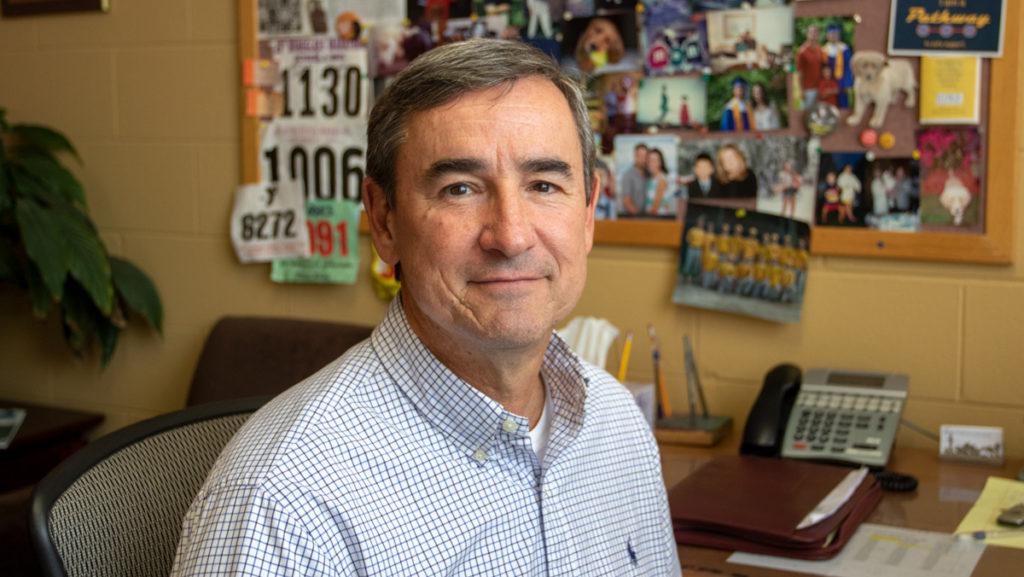After the Ithaca College Republicans posted a statement to its Facebook page politicizing the death of Mollie Tibbetts, questions have been raised about hate speech policies — or lack thereof — at the college.
The college’s policy manual outlines how the college would handle a situation of hate speech — the college would not take action unless the speech incites or provokes violence. The section titled “Rules for the Maintenance of Public Order” states that no one can be limited based solely on their expression of views or for assembling peacefully, nor is anyone allowed to stop an event at the college, such as a student–sponsored activity or program. This policy is consistent with federal laws, which state that all speech is protected under the First Amendment unless there is a clear and present danger prompted by the speech.
Hate speech is speech that offends, threatens or insults groups based on race, color, religion, national origin, sexual orientation, disability or other traits, according to the American Bar Association.
Michael Leary, assistant director for the Office of Judicial Affairs, said the college follows the Supreme Court precedent that all speech is protected unless there is a clear and present danger prompted from the speech. Otherwise, the speech is protected under the First Amendment right to free speech.
Leary said as long as what is being said falls within First Amendment protections, the college will not take action to stop it.
“It’s hard to find that fine line between what someone sees as offensive or disagrees with,” Leary said. “At a college campus, you want to be able to have that discussion, or this seems like the place to do that. People shouldn’t feel powerless or have to take that kind of language.”
Leary said the college would take action, and there would not be First Amendment protection, if someone felt harassed by speech or if there was an attempt to incite violence through speech.
Leary said the recently released bias-related incident report system will help the college address any perceived forms of hate speech and deal with those on a case–by–case basis if action is needed. This new system allows students, staff and faculty to report to the college, through an online form, incidents that felt discriminatory toward an individual’s race, gender, sexual orientation, political affiliation or religion. Leary said the incident reports may not necessarily lead to policy changes but will help to inform the college and Judicial Affairs about the steps they can take to reduce these kinds of incidents.
Leary said that in the classroom, professors should keep discussions about difficult topics as open as possible so long as the type of discussion stays respectful.
“I’m sure that individual faculty members will decide during their class if this is too offensive to talk about, or is it something they feel is a challenging discuss,” Leary said. “You have some real disagreement, but the college classroom is considered an appropriate place to talk about that, and it’s OK if people disagree as long as they are respectful to one another.”
The college is not the only private university to have this kind of bias-related incident reporting system. Elon University, a private college in Elon, North Carolina, has a similar system that gives community members the ability to report bias-related incidents through an online form. Although many private institutions are creating online systems to report bias-related incidents, some private colleges like Marist College, located in Dutchess County, New York, does not have a bias incident reporting form and their student code of conduct does not define free speech or hate speech. The harassment section of the code of conduct identifies bias-related incidents as intolerable, though does not specify hate speech as one of them.
Sean Bradwell, director of the Center for Inclusion Diversity Equity and Social Change, said his office wants to focus on getting college community members together to talk about issues they face on a day-to-day basis.
“It depends, but we as a college, as a private institution, also have the right, if we choose, to say that’s not acceptable on our campus, so it depends on what we want to stand behind,” Bradwell said. “I am much less interested in trying to find ways to stop people from speaking. I am very interested in finding ways in which we are building community and affirming people and their identities.”
Howard Gillman, chancellor at the University of California, Irvine, a public university, has written books and articles about free speech and said hate speech is not a recognized exception to free speech protections.
Gillman said he thinks colleges should not limit speech rights for students because it creates a culture of both self-censorship and a dismissal of ideas.
“One might choose to be in an environment where their views are never challenged or where they only hear ideas they already like, but higher education cannot be such a place,” Gillman said.
Senior Samantha Hong said the college’s policy — that speech is protected unless it provokes violence — is an ethical way to approach free speech.
“I think it’s always going to be complicated, but generally physically I think that we all need to be safe and take care of ourselves … take care of the people surrounding ourselves,” Hong said. “In a perfect world, people can say whatever they want, but there’s always going to be consequences to everything you say.”
Freshman Olivia Acuna said she thinks it is difficult for the college to prevent hate speech that manifests in classroom settings.
“I don’t think you can really protect against it that much because, when I think of hate speech, I think of slurs that students will use maybe without thinking about what they’re saying,” Acuna said. “I don’t think colleges can protect against that, to some extent.”








